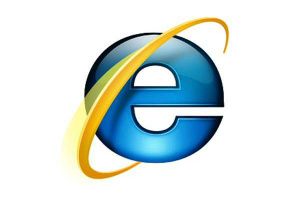European regulators have urged an Internet standards-setting body to let Microsoft set users’ preferences for the ‘do not track’ privacy feature in the upcoming Internet Explorer 10 (IE10).
But the European Commission also asked the Worldwide Web Consortium (W3C) to require browser makers to present do not track (DNT) options to users when they first install or run a browser, and allow them to change the default.
"The standard should foresee that at the install or first use of the browser the owner should be informed of the importance of their DNT choice, told of the default setting and prompted or allowed to change that setting," Robert Madelin, who heads the European Commission’s Information Society and Media Directorate-General, said in a letter to the W3C.
Madelin’s suggestion was the Commission’s first public reaction to Microsoft’s surprise announcement last month that IE10 will have DNT switched on by default.
On 31 May, the same day that it released Windows 8 Release Preview, Microsoft’s chief privacy officer said that IE10, the browser bundled with Windows 8 and its tablet offshoot Windows RT, would have DNT on by default because the company "believe[s] in people first. The W3C, however, has opposed Microsoft’s move.
In a draft of the standard published shortly after Microsoft’s announcement, the W3C group working on DNT said users must express their preference, and that a browser maker could not do it for them.
That meant if Microsoft did not change its mind, or if the W3C did not back down, Microsoft would not be able to claim it supports the standard. Some in the W3C group, primarily online advertisers, wanted even harsher anti-Microsoft language in the standard that would let websites ignore IE10’s DNT request because users had not been forced to make the choice themselves.
Mozilla, the maker of Firefox, has backed the idea that only users can turn on DNT. All five major browsers – Chrome, Firefox, Internet Explorer, Opera and Safari – can send a DNT signal.
Madelin said that IE10’s on-by-default shouldn’t be an issue. The European Commission’s urging of a first-run DNT prompt could signal that it takes the privacy setting as seriously as browser competition, and that it may push aggressively for the choice dialog.
TechCentral Reporters








Subscribers 0
Fans 0
Followers 0
Followers